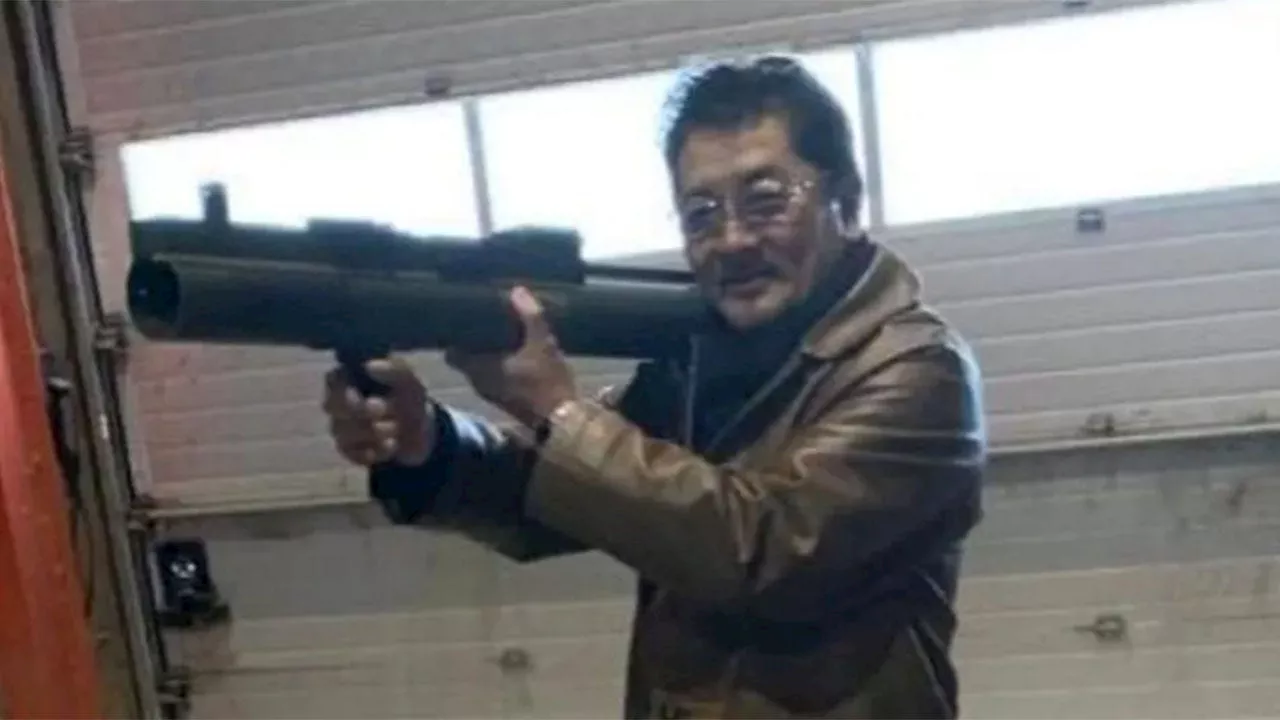Takeshi Ebisawa, head of a notorious Japanese yakuza syndicate, pleaded guilty to conspiring to traffic nuclear materials to Iran and US weapons from Afghanistan to Burma. The charges also include international narcotics trafficking and weapons offenses.
A man who federal prosecutors say runs a notorious Japanese organized crime syndicate pleaded guilty last week to conspiring to traffic nuclear materials to Iran and U.S. weapons abandoned in Afghanistan to Burma. Takeshi Ebisawa, the 60-year-old alleged leader of the Japanese yakuza, pleaded guilty in Manhattan federal court on Wednesday to conspiring with a network of associates to traffic nuclear materials, including uranium and weapons-grade plutonium, from Burma to other countries.
He also pleaded guilty to international narcotics trafficking and weapons charges, the Justice Department announced. Acting U.S. Attorney Edward Y. Kim for the Southern District of New York said Ebisawa admitted that he 'brazenly trafficked nuclear material, including weapons-grade plutonium, out of Burma,' while at the same time, he worked to 'send massive quantities of heroin and methamphetamine to the United States in exchange for heavy-duty weaponry such as surface-to-air missiles to be used on battlefields in Burma and laundered what he believed to be drug money from New York to Tokyo.' The Drug Enforcement Administration (DEA) had been investigating Ebisawa since at least 2019, according to court documents and evidence presented in court. During the course of the probe, federal prosecutors say Ebisawa unwittingly introduced an undercover DEA agent who was posing as a narcotics and weapons trafficker to his international network of criminal associates, which spanned Japan, Thailand, Burma, Sri Lanka, and the United States, among other places, 'for the purpose of arranging large-scale narcotics and weapons transactions.' JAPANESE CRIME BOSS CHARGED BY US PROSECUTORS IN CONSPIRACY TO TRAFFIC NUCLEAR MATERIAL TO IRANThe superseding indictment alleges Ebisawa and his network, including his co-defendants, negotiated multiple narcotics and weapons transactions with that undercover agent. Ebisawa conspired to broker the purchase of U.S.-made surface-to-air missiles, as well as other heavy-duty weaponry, intended for 'multiple ethnic armed groups in Burma,' including the unidentified leader of 'an ethnic insurgent group,' according to federal prosecutors. He also allegedly negotiated a deal to accept large quantities of heroin and methamphetamine for distribution as partial payment for the weapons. 'Ebisawa understood the weapons to have been manufactured in the U.S. and taken from U.S. military bases in Afghanistan,' the DOJ said. 'Ebisawa planned for the heroin and methamphetamine to be distributed in the New York market.' In a separate transaction, he also allegedly conspired to sell 500 kilograms of methamphetamine and 500 kilograms of heroin to the undercover agent for distribution in New York, prosecutors say. Ebisawa was also accused of working to launder $100,000 in purported narcotics proceeds from the U.S. to Japan. Beginning in early 2020, court documents say Ebisawa informed the undercover agent and a DEA confidential source that he had access to a large quantity of nuclear materials that he wanted to sell. Later that year, Ebisawa allegedly sent the undercover agent a series of photos 'depicting rocky substances with Geiger counters measuring radiation,' as well as purported lab analyses indicating the presence of thorium and uranium, court documents say. At Ebisawa's urging, the undercover agent agreed to help him broker the sale of his nuclear materials to an associate who was posing as an Iranian general for use in a nuclear weapons program, according to the Justice Department. Prosecutors say Ebisawa then offered to supply the supposed Iranian general with 'plutonium' that would be even 'better' and more 'powerful' than uranium for this purpose. With two other co-conspirators, Ebisawa allegedly proposed to the undercover agent that the Burma insurgent group leader sell uranium to the supposed Iranian general, through Ebisawa, to fund the group's weapons purchase. On a Feb. 4, 2022, video call, one of Ebisawa's co-conspirators allegedly told the undercover DEA agent and the Burma insurgent group leader that he had available more than 2,000 kilograms of Thorium-232 and more than 100 kilograms of uranium in the compound U3O8 – a compound of uranium commonly found in the uranium concentrate powder known as 'yellowcake,' according to court documents. He allegedly claimed he could produce as much as five tons of nuclear materials in Burma. They had several meetings in Southeast Asia to discuss their ongoing transactions, prosecutors say. During one of these meetings, one of Ebisawa's co-conspirators showed the undercover agent in a Thailand hotel room two plastic containers each holding a powdery yellow substance which he described as nuclear samples of 'yellowcake.' He allegedly said one container held a sample of uranium in the compound U3O8, and the other container held Thorium-23
NUCLEAR MATERIALS YAKUZA TRAFFICKING WEAPONS IRAN
United States Latest News, United States Headlines
Similar News:You can also read news stories similar to this one that we have collected from other news sources.
 Japanese Yakuza Leader Pleads Guilty to Nuclear Trafficking and Weapons ChargesTakeshi Ebisawa, a Japanese Yakuza leader, pleaded guilty in a New York federal court to conspiring to traffic nuclear materials from Burma to other countries. He also admitted to charges of international narcotics trafficking and weapons charges.
Japanese Yakuza Leader Pleads Guilty to Nuclear Trafficking and Weapons ChargesTakeshi Ebisawa, a Japanese Yakuza leader, pleaded guilty in a New York federal court to conspiring to traffic nuclear materials from Burma to other countries. He also admitted to charges of international narcotics trafficking and weapons charges.
Read more »
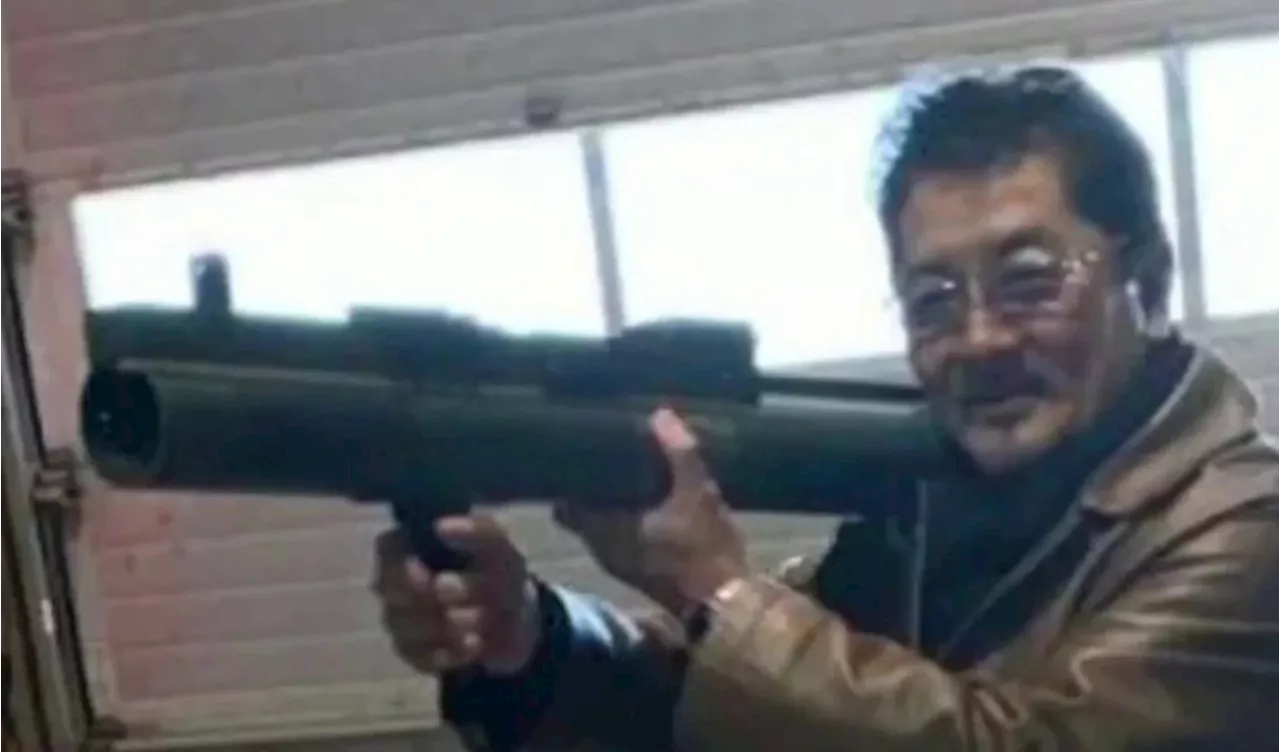 Yakuza Leader Pleads Guilty to Nuclear Trafficking and Weapons ChargesTakeshi Ebisawa, a Japanese Yakuza leader, pleaded guilty in a New York federal court to conspiring to traffic nuclear materials from Burma to other countries. He also admitted to charges of international narcotics trafficking and weapons dealing.
Yakuza Leader Pleads Guilty to Nuclear Trafficking and Weapons ChargesTakeshi Ebisawa, a Japanese Yakuza leader, pleaded guilty in a New York federal court to conspiring to traffic nuclear materials from Burma to other countries. He also admitted to charges of international narcotics trafficking and weapons dealing.
Read more »
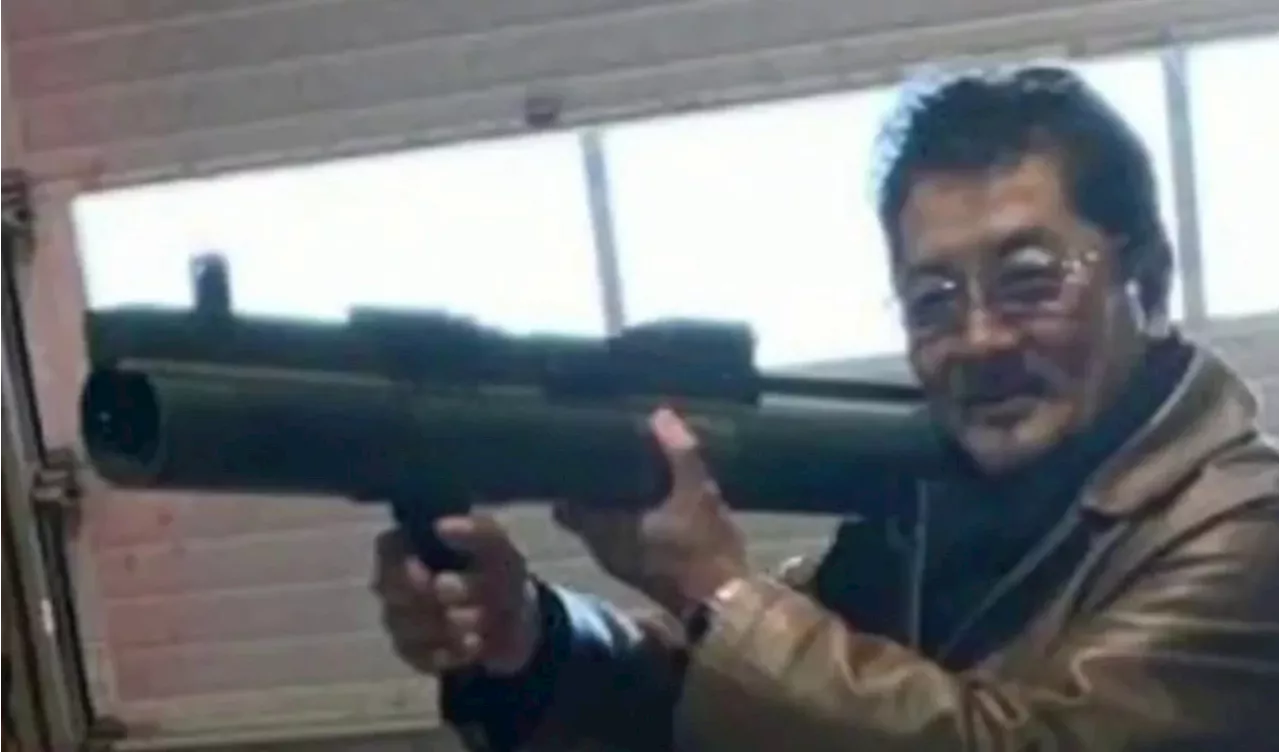 Yakuza Leader Pleads Guilty to Nuclear Trafficking, Weapons and Drug ChargesTakeshi Ebisawa, a high-ranking member of the Japanese Yakuza, admitted to a conspiracy involving the illegal transport of nuclear materials, weapons, and drugs.
Yakuza Leader Pleads Guilty to Nuclear Trafficking, Weapons and Drug ChargesTakeshi Ebisawa, a high-ranking member of the Japanese Yakuza, admitted to a conspiracy involving the illegal transport of nuclear materials, weapons, and drugs.
Read more »
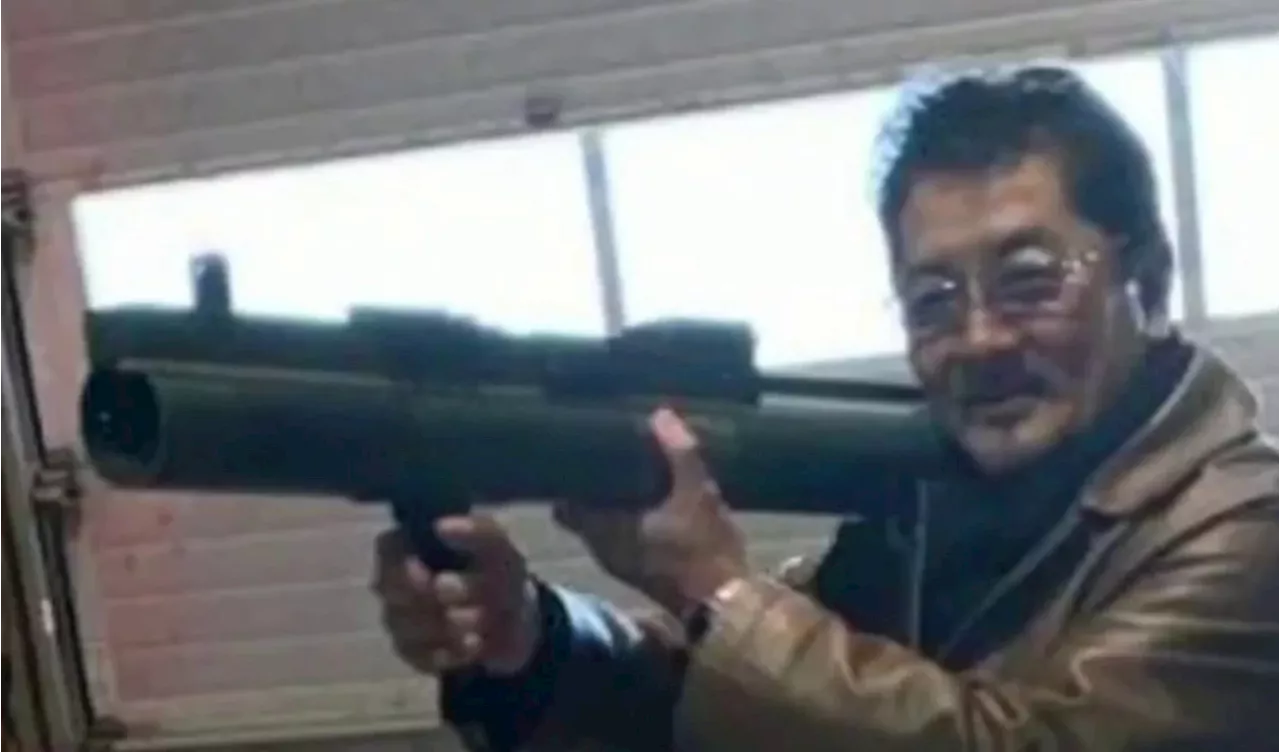 Yakuza Leader Pleads Guilty To Nuclear Material TraffickingTakeshi Ebisawa, a Japanese Yakuza leader, admitted to conspiring to traffic nuclear materials from Burma to other countries, including uranium and weapons-grade plutonium. He also pleaded guilty to international narcotics trafficking and weapons charges.
Yakuza Leader Pleads Guilty To Nuclear Material TraffickingTakeshi Ebisawa, a Japanese Yakuza leader, admitted to conspiring to traffic nuclear materials from Burma to other countries, including uranium and weapons-grade plutonium. He also pleaded guilty to international narcotics trafficking and weapons charges.
Read more »
 Yakuza Leader Pleads Guilty to Nuclear Trafficking, Weapons, and Drugs ChargesTakeshi Ebisawa, a Japanese Yakuza leader, pleaded guilty in a New York federal court to charges including conspiring to traffic nuclear materials from Burma to other countries, international narcotics trafficking, and weapons charges.
Yakuza Leader Pleads Guilty to Nuclear Trafficking, Weapons, and Drugs ChargesTakeshi Ebisawa, a Japanese Yakuza leader, pleaded guilty in a New York federal court to charges including conspiring to traffic nuclear materials from Burma to other countries, international narcotics trafficking, and weapons charges.
Read more »
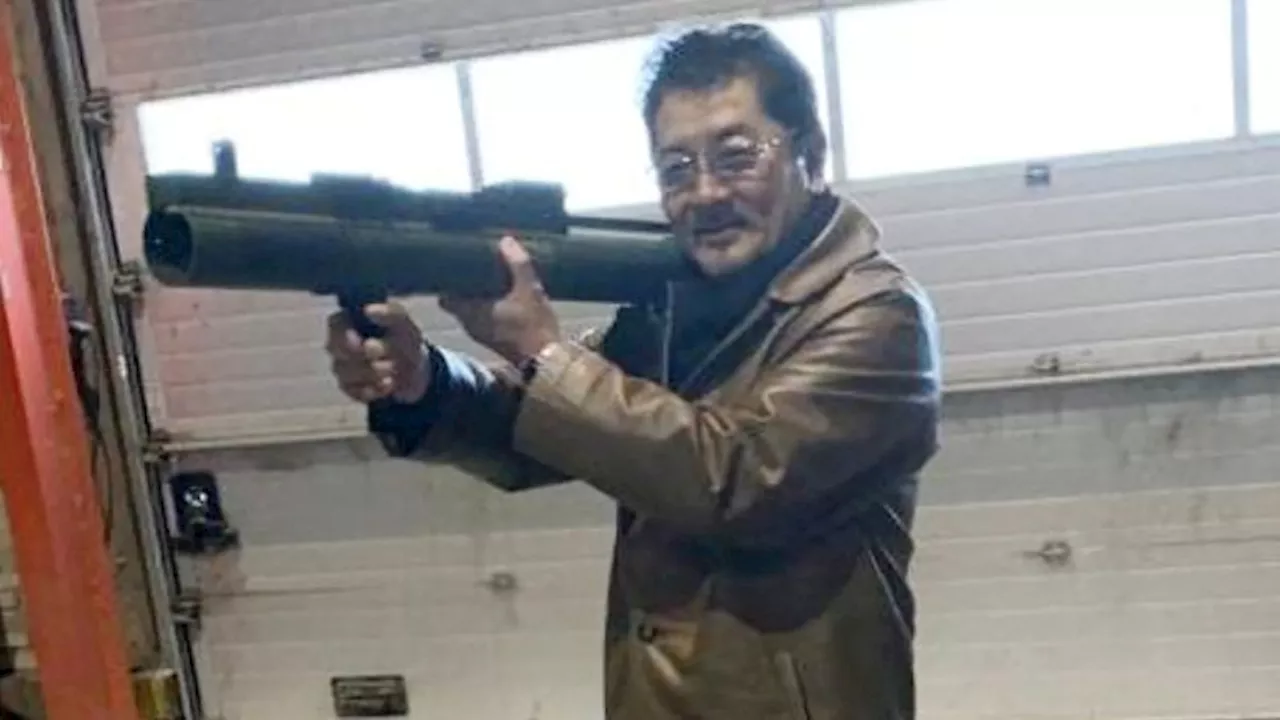 Yakuza Leader Pleads Guilty to Nuclear Material TraffickingA high-ranking Yakuza member admitted to trading nuclear materials, including weapons-grade plutonium, with an undercover US agent posing as an Iranian general.
Yakuza Leader Pleads Guilty to Nuclear Material TraffickingA high-ranking Yakuza member admitted to trading nuclear materials, including weapons-grade plutonium, with an undercover US agent posing as an Iranian general.
Read more »
